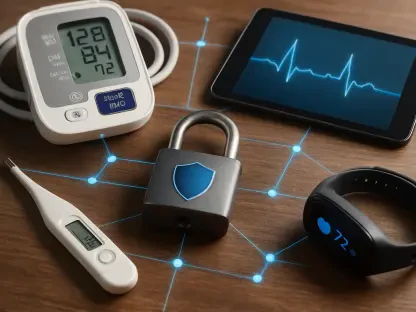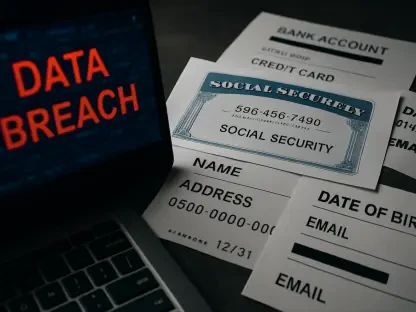Cybersecurity threats, particularly ransomware attacks, have become increasingly prevalent in the healthcare sector. The recent ransomware attack on DaVita, a leading kidney care provider operating over 2,600 outpatient dialysis centers across the United States, highlights this growing concern. Discovered on Saturday, this attack has encrypted portions of DaVita’s network, impacting its operations and necessitating immediate response actions to maintain patient care. This roundup article collates various expert opinions, tips, and insights on navigating such cyber crises in healthcare and discusses broader implications for the industry.
Context and Background: The Rise of Ransomware in Healthcare
Ransomware attacks involve malware encrypting data and demanding a ransom for its release. In the healthcare sector, these incidents can be particularly devastating, disrupting access to vital systems and complicating care delivery. According to a survey by cybersecurity firm Sophos, two-thirds of healthcare organizations experienced ransomware attacks within the past year. Experts agree that the healthcare industry is especially vulnerable due to outdated systems and the high value of medical data on black markets.
The attack on DaVita mirrors those on UnitedHealth’s subsidiary Change Healthcare and the nonprofit hospital chain Ascension. Both attacks resulted in significant data breaches and disrupted operations. Comprehensive cybersecurity measures and rapid response protocols are crucial to address such threats and ensure continuity of care.
Unpacking DaVita’s Response: Immediate Actions and Strategies
Tactical Measures: How DaVita Ensured Continuity Amid the Attack
Upon discovering the ransomware attack, DaVita activated its backup systems and manual processes to ensure patient care continued uninterrupted. Immediate measures included isolating infected systems to prevent spread, notifying relevant authorities, and collaborating with external cybersecurity experts to investigate and restore impacted networks quickly.
Expert Insights: Navigating Cyber Crises in Healthcare
Experts in cybersecurity emphasize the importance of preparedness in mitigating the effects of ransomware attacks on healthcare operations. Key strategies include regular system audits, employee training on phishing threats, and maintaining updated software to prevent vulnerabilities. Additionally, a robust incident response plan is vital to swiftly contain and address breaches, minimizing potential disruptions to patient care.
Impact on Operations: Short-Term and Long-Term Effects on DaVita
Case Studies: Lessons from Change Healthcare and Ascension
Looking at Change Healthcare and Ascension’s experiences, we can observe how significant ransomware attacks have long-term repercussions. These attacks forced both organizations to delay appointments, redirect patients to other facilities, and invest heavily in rebuilding their cybersecurity infrastructure. Similar effects are expected for DaVita, with immediate operational disruptions likely to evolve into more prolonged impacts on resource allocation and system security.
Industry Shifts: Adapting to Heightened Cybersecurity Threats
The frequency and impact of ransomware attacks necessitate a shift in how healthcare organizations approach cybersecurity. Industry leaders recognize the need for increased vigilance, adopting proactive measures to protect sensitive health information and ensure uninterrupted services. This shift includes investing in advanced cybersecurity technologies, fostering collaboration with cybersecurity firms, and implementing comprehensive training programs for staff.
Emerging Trends: The Growing Sophistication of Ransomware Attacks
Regional Variations: Cyber Threats in Different Healthcare Landscapes
The sophistication of ransomware attacks continues to grow, with hackers employing more advanced techniques to breach systems. There is a noticeable variation in threats faced by healthcare providers in different regions, influenced by factors such as local cybersecurity policies and healthcare infrastructure. Experts suggest that regions with weaker cybersecurity defenses may be more vulnerable to sophisticated attacks.
Future Possibilities: Innovations and Preventive Measures
As healthcare organizations adapt to these heightened threats, innovations in cybersecurity are emerging as potential solutions. Machine learning and artificial intelligence-driven analytics are increasingly used to predict and prevent attacks, while blockchain technologies offer promising avenues for securing patient data. Preventive measures, such as regular system upgrades and comprehensive cybersecurity protocols, are essential components of forward-looking strategies.
A Broader Look: Cybersecurity’s Role in Ensuring Healthcare Integrity
Comparative Analyses: How Different Organizations Respond to Ransomware
Different healthcare organizations have varied responses to ransomware threats, influenced by their size, resources, and existing cybersecurity infrastructure. Comparative analyses reveal that larger entities with extensive resources can implement more robust defenses and rapid responses, whereas smaller providers may struggle to recover from attacks due to limited resources and expertise.
Expert Opinions: Speculating on the Future of Cybersecurity in Healthcare
While experts acknowledge current progress in addressing these threats, they also speculate on future advancements in healthcare cybersecurity. A consensus suggests that continuous investment in technology and training will be crucial to combatting increasingly sophisticated attacks. The integration of cybersecurity into everyday healthcare operations will become more pronounced, ensuring that patient care and data integrity remain uncompromised.
Key Takeaways: Essential Lessons from the DaVita Ransomware Incident
Recommendations: Strengthening Cyber Defenses in Healthcare
From the DaVita ransomware incident, several key takeaways emerge. Recommendations for healthcare organizations include enhancing encryption protocols, conducting regular system audits, and implementing multi-factor authentication. Additionally, fostering a culture of cybersecurity awareness among staff is critical to reducing vulnerabilities and preventing breaches.
Practical Applications: Implementing Robust Cybersecurity Strategies
To effectively implement robust cybersecurity strategies, organizations must allocate resources toward state-of-the-art technologies and training programs. Practical applications involve deploying advanced threat detection systems, establishing clear incident response procedures, and collaborating with cybersecurity experts to stay ahead of potential threats. Such measures ensure that healthcare providers can swiftly address and recover from cyber crises.
Reinforcing Themes: The Imperative of Vigilance and Preparedness
Emphasizing Importance: Long-Term Implications for Cybersecurity in Healthcare
The DaVita ransomware attack reinforces the importance of vigilance and preparedness in the healthcare sector. The long-term implications highlight the need for continuous investment in cybersecurity infrastructure and adopting proactive measures to safeguard sensitive information. Cyber threats are expected to evolve, making ongoing improvement and adaptation crucial for maintaining healthcare integrity.
Conclusion: Strategic Insights and Calls to Action for Healthcare Organizations
Healthcare organizations must take strategic actions to address cybersecurity challenges comprehensively. Looking at DaVita’s response, it is clear that immediate activation of backup systems and professional collaboration are effective in mitigating the impact of ransomware attacks. Moving forward, sustained efforts in technology adoption, staff training, and proactive cybersecurity measures will be essential in ensuring resilience against future threats.









